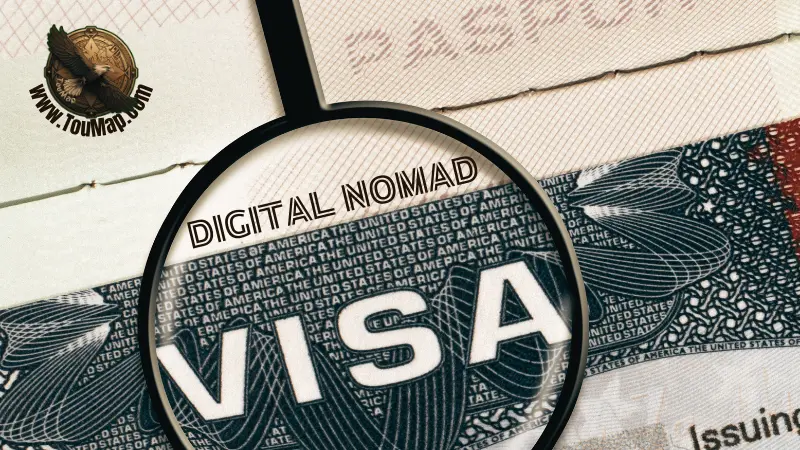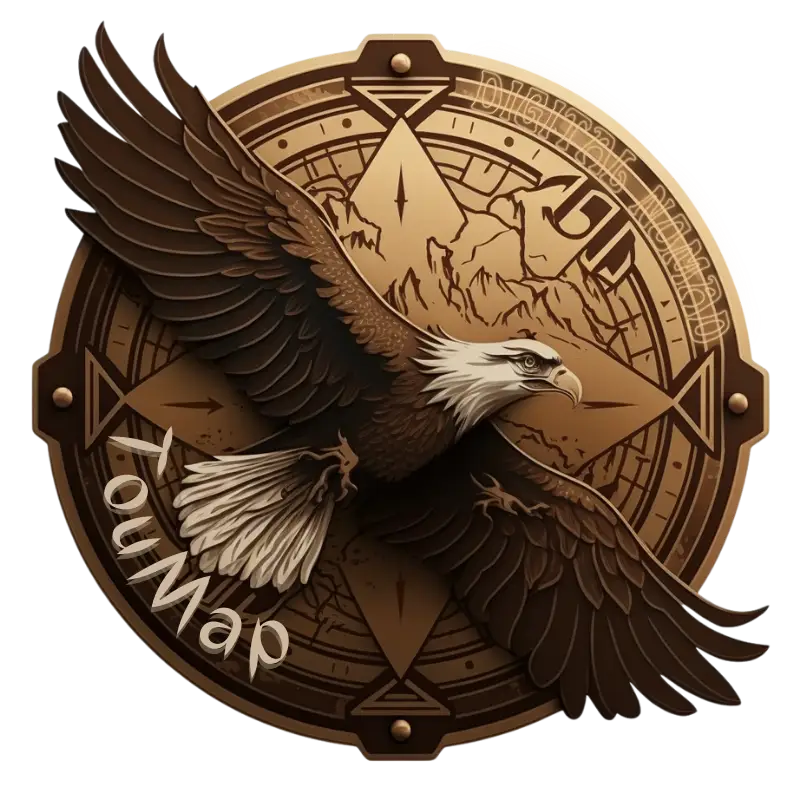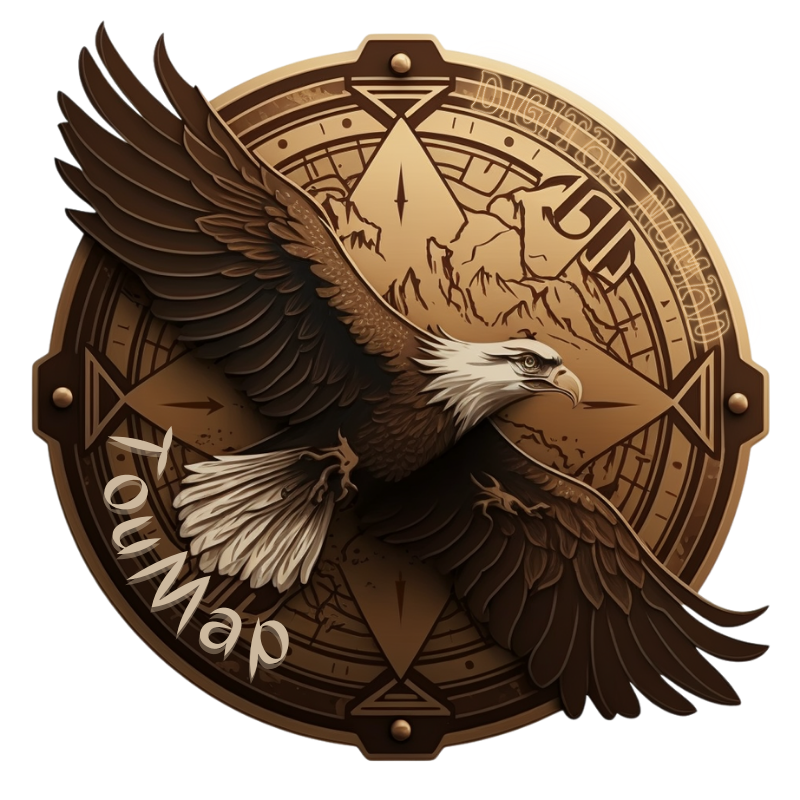As a digital nomad, one of the most important things to consider when planning your next destination is the availability of a digital nomad visa. These visas allow remote workers to live and work in a foreign country for extended periods, often up to a year or more. With so many countries now offering digital nomad visas, it can be overwhelming to decide which one is right for you. In this comprehensive guide, I will provide you with all the information you need to find the best digital nomad visa for your unique situation.
To start, it’s important to understand the basics of digital nomad visas, including what they are, how they work, and why they are becoming increasingly popular. I will explain the different types of digital nomad visas available, including those in Europe, Asia, and South America. I will also provide tips on how to find the right visa for your needs, including factors such as cost, location, and length of stay.
Throughout this guide, I will also provide reviews and insurance recommendations, as well as tax considerations for digital nomads. I will answer frequently asked questions and provide tips on the application process. By the end of this guide, you will have a comprehensive understanding of digital nomad visas and be able to confidently choose the best one for your unique situation.
Key Takeaways
- Understanding the basics of digital nomad visas is key to finding the right one for you.
- Consider factors such as cost, location, and length of stay when choosing a digital nomad visa.
- Reviews, insurance, and tax considerations are important factors to keep in mind when applying for a digital nomad visa.
I. Understanding Digital Nomad Visas

As a digital nomad, finding the best visa for your needs is crucial. In this section, I will provide an overview of digital nomad visas and their requirements.
1. What is a Digital Nomad Visa?
A digital nomad visa is a type of visa that allows remote workers to live and work in a foreign country for an extended period of time. These visas are typically designed for individuals who work remotely and do not require a physical presence in their home country.
Digital nomad visas have become increasingly popular in recent years, as more and more people are choosing to work remotely and travel the world. Many countries have recognized the benefits of attracting digital nomads and have introduced their own digital nomad visa programs.
2. Digital Nomad Visa Requirements
While the requirements for digital nomad visas vary from country to country, there are some common requirements that you should be aware of. These may include:
- Proof of employment: You may be required to provide proof of employment, such as a contract or letter from your employer.
- Proof of income: Some countries may require you to show that you have a certain level of income to support yourself while living in the country.
- Health insurance: Many countries require digital nomads to have health insurance that covers them while they are living in the country.
- Criminal background check: Some countries may require a criminal background check before issuing a visa.
- Application fee: There may be an application fee associated with applying for a digital nomad visa.
It’s important to note that the requirements for digital nomad visas can change at any time, so it’s important to do your research and stay up-to-date with the latest requirements.
In summary, digital nomad visas are a great option for remote workers who want to live and work in a foreign country. However, it’s important to understand the requirements for each visa program before applying to ensure that you meet the eligibility criteria.
II. Specific Digital Nomad Visas

When it comes to finding the best digital nomad visa, it’s important to consider your specific situation and needs. Here are some of the most common types of digital nomad visas available:
1. Visa For Remote Workers
This type of visa is designed for individuals who work remotely for a company based in another country. The visa allows you to live and work in the host country for a specified period of time, typically up to a year, without needing to obtain a work permit. Some popular countries offering this type of visa include Estonia, Germany, and Portugal.
2. Visa For Freelancers
If you’re a freelancer or self-employed, you may be eligible for a digital nomad visa that allows you to live and work in the host country. This type of visa typically requires proof of income and may have specific requirements around the type of work you do. Some popular countries offering this type of visa include Spain, Mexico, and Thailand.
3. Visa For Entrepreneurs
Entrepreneurs looking to start a business or invest in a new venture while living abroad may be eligible for a digital nomad visa. These visas often require proof of investment or a business plan and may have specific requirements around the type of business you’re starting. Some popular countries offering this type of visa include the United Arab Emirates, Italy, and Costa Rica.
4. Visa For Students
If you’re a student looking to study abroad while also working remotely, a digital nomad visa may be the perfect solution. These visas typically allow you to work a certain number of hours per week while also attending school. Some popular countries offering this type of visa include Germany, France, and Australia.
5. Visa For Retirees
Retirees looking to spend their golden years abroad may be eligible for a digital nomad visa. These visas typically require proof of retirement income and may have age restrictions. Some popular countries offering this type of visa include Panama, Portugal, and Mexico.
6. Visa For Families
If you’re traveling with your family, some countries offer digital nomad visas that allow your spouse and children to also live and work in the host country. These visas may have specific requirements around the type of work your spouse can do and may require proof of financial support. Some popular countries offering this type of visa include Barbados, Bermuda, and the Cayman Islands.
Overall, it’s important to research and compare different digital nomad visas to find the one that best fits your needs and situation. By understanding the specific requirements and restrictions of each visa, you can make an informed decision and enjoy a successful digital nomad lifestyle.
III. Application Process and Cost

1. How to Apply
The application process for a digital nomad visa varies depending on the country you are applying to. However, there are some common requirements that you will need to fulfill. Firstly, you will need to fill in the application form and pay the visa fee. Secondly, you will need to provide proof of income, which shows that you have a steady source of income to support yourself while living in the country. Thirdly, you will need to submit documents proving your online activity, which demonstrates that you are a remote worker.
It is important to note that some countries may have additional requirements, such as health insurance or a clean criminal record. Therefore, it is essential to research the specific requirements of the country you are interested in applying to before starting the application process.
2. Cost of Digital Nomad Visas
The cost of a digital nomad visa varies depending on the country you are applying to. Some countries, such as Estonia and Georgia, offer digital nomad visas for free, while others, such as Norway and Germany, charge a fee for their visas.
In addition to the visa fee, you may also need to pay for other expenses, such as health insurance, accommodation, and transportation. It is important to factor in these additional costs when considering the overall cost of living in the country.
Overall, the application process and cost for a digital nomad visa can vary greatly depending on the country you are applying to. It is important to research the specific requirements and costs of the country you are interested in before starting the application process.
3. Benefits and Tips

4. Benefits of Digital Nomad Visas
As a digital nomad, having a digital nomad visa can offer a range of benefits. Here are some of the main advantages of obtaining a digital nomad visa:
- Legal Work Status: With a digital nomad visa, you can legally work in a foreign country for an extended period of time. This means you won’t have to worry about overstaying your tourist visa or facing legal issues related to working without the proper documentation.
- Cultural Immersion: With a digital nomad visa, you can fully immerse yourself in a new country’s culture, language, and customs. This can be a great way to expand your horizons and gain new experiences.
- Access to Local Services: With a digital nomad visa, you can access local services such as healthcare, banking, and insurance. This can be a great way to ensure you have everything you need to live and work comfortably in a foreign country.
5. Tips for Getting a Digital Nomad Visa
If you’re interested in obtaining a digital nomad visa, here are some tips to help you get started:
- Research Your Options: Start by researching the digital nomad visa options available to you. Look at the requirements, application process, and any fees associated with each option. This will help you find the best fit for your needs.
- Gather Required Documents: Once you’ve identified a digital nomad visa you’re interested in, gather all the required documents. This may include proof of income, proof of travel insurance, and a criminal background check.
- Apply Early: Digital nomad visas can take some time to process, so it’s important to apply early. This will give you plenty of time to gather all the required documents and complete the application process.
- Be Flexible: Keep in mind that not all countries offer digital nomad visas, and the requirements and application processes can vary widely between countries. Be flexible and open to exploring different options to find the best fit for your needs.
By following these tips and understanding the benefits of digital nomad visas, you can find the best option for your needs and start living and working as a digital nomad in a foreign country.
IV. Reviews and Insurance

1. Reviews of Digital Nomad Visas
When looking for the best digital nomad visa, it’s important to do your research and read reviews from other digital nomads. Websites like Planet Nomad offer a comprehensive guide with a list of countries that offer digital nomad visas. They provide information on the visa requirements, costs, and application process.
Another great resource for reviews of digital nomad visas is online forums and Facebook groups. These communities are filled with experienced digital nomads who are happy to share their insights and offer advice on which countries offer the best visas for digital nomads.
2. Insurance for Digital Nomads
As a digital nomad, it’s important to have adequate insurance coverage in case of an emergency. Travel insurance companies like World Nomads and SafetyWing offer insurance plans specifically designed for digital nomads.
When choosing an insurance plan, it’s important to consider factors like coverage for medical emergencies, lost or stolen belongings, and trip cancellations. Make sure to read the fine print and understand what is covered and what is not.
In addition to travel insurance, it’s also important to have health insurance coverage. Many digital nomads choose to enroll in a global health insurance plan like Cigna Global or IMG Global. These plans offer comprehensive coverage for medical emergencies and routine healthcare.
Overall, it’s important to do your research and choose an insurance plan that meets your specific needs as a digital nomad. Don’t skimp on insurance coverage, as it can make all the difference in case of an emergency.
V. Tax Considerations

As a digital nomad, tax considerations are an essential aspect to consider when choosing a destination for your travels. Taxes for digital nomads can be complicated and can vary depending on where you are from and where you are traveling. Here are some key tax considerations to keep in mind when choosing your digital nomad visa destination:
1. Foreign Earned Income Exclusion (FEIE)
One of the most important tax considerations for digital nomads is the Foreign Earned Income Exclusion (FEIE). The FEIE allows US citizens and US permanent residents to exclude up to a certain amount of their foreign-earned income from US federal income tax. For 2023, the maximum FEIE amount is $120,900. To qualify for the FEIE, you must meet either the physical presence test or the bona fide residence test.
2. Tax Treaty
Another important consideration for digital nomads is the tax treaty between your home country and the country you are traveling to. Tax treaties are agreements between two countries that determine how taxes will be paid on income earned in one country by a resident of the other country. Tax treaties can help prevent double taxation and can provide other tax benefits for digital nomads.
3. Self-Employment Tax
If you are self-employed as a digital nomad, you will need to pay self-employment tax on your foreign-earned income. This tax is used to fund Social Security and Medicare programs in the US. The self-employment tax is currently 15.3% of your net self-employment income.
4. Non-Resident Taxes
If you are not a resident of the country you are traveling to, you may still be subject to non-resident taxes on your income earned in that country. Non-resident taxes can be higher than resident taxes, so it is important to research the tax laws of the country you are traveling to before you arrive.
5. Tax-Friendly Countries
Some countries are more tax-friendly for digital nomads than others. For example, Portugal has a special tax regime for non-habitual residents (NHR), offering a flat 20% income tax rate on certain types of income earned in Portugal, and a tax exemption on most foreign income sources. Other countries, such as Estonia, have a flat income tax rate of 20% for all residents, including digital nomads.
Overall, tax considerations are an important aspect to consider when choosing a digital nomad visa destination. It is important to research the tax laws of the country you are traveling to and to consult with a tax professional to ensure that you are complying with all applicable tax laws.
Digital nomads, travel the world with confidence with the TouMap Community! Contact us today for a free consultation on your travel and visa choices.
VI. Frequently Asked Questions

Q1: What are the best countries for digital nomads in 2023?
A1: The best countries for digital nomads in 2023 vary depending on your preferences and needs. Some popular options include Bermuda, Barbados, Antigua and Barbuda, Cayman Islands, and Anguilla. These countries offer digital nomad visas that allow you to work remotely while enjoying their beautiful scenery, warm weather, and relaxed lifestyle. However, it’s important to research each country’s visa requirements, cost of living, and safety before making a decision.
Q2: Which digital nomad visas have the best tax benefits?
A2: Several countries offer digital nomad visas with tax benefits, including Portugal, Estonia, and Georgia. Portugal’s Non-Habitual Resident (NHR) program, for example, allows you to pay little to no tax on your foreign income for up to 10 years. Estonia’s e-Residency program offers a flat 20% corporate tax rate and no personal income tax for non-residents. Georgia’s digital nomad visa allows you to work tax-free for up to one year.
Q3: What is the easiest digital nomad visa to obtain?
A3: The easiest digital nomad visa to obtain varies depending on your nationality and destination. Some countries, such as Croatia and Georgia, have relatively straightforward application processes and low requirements. Others, such as Switzerland and Japan, have more stringent requirements and longer processing times. It’s important to research each country’s visa requirements and consult with a visa specialist if necessary.
Q4: What are the requirements for a South African digital nomad visa?
A4: South Africa’s digital nomad visa, also known as the Long Term Visa (LTV), requires proof of a monthly income of at least R37,000 (approximately $2,400 USD), a valid passport, and a clean criminal record. The visa is valid for up to four years and allows you to work remotely while living in South Africa.
Q5: What is the cost of a digital nomad visa in Italy for 2023?
A5: Italy’s digital nomad visa, also known as the Smart Working Visa, is expected to cost around €50 (approximately $58 USD) for a six-month visa and €100 (approximately $116 USD) for a one-year visa. The visa allows you to work remotely while living in Italy and is expected to be available in 2023.
Q6: What are the benefits of getting a digital nomad visa in Montenegro?
A6: Montenegro’s digital nomad visa, also known as the Digital Nomad Residence Permit, offers several benefits, including a low cost of living, beautiful scenery, and a relaxed lifestyle. The visa allows you to work remotely while living in Montenegro for up to one year. Additionally, Montenegro does not have a wealth tax, making it an attractive option for digital nomads looking to save money.
Digital nomads, travel the world with confidence with the TouMap Community! Contact us today for a free consultation on your travel and visa choices.





